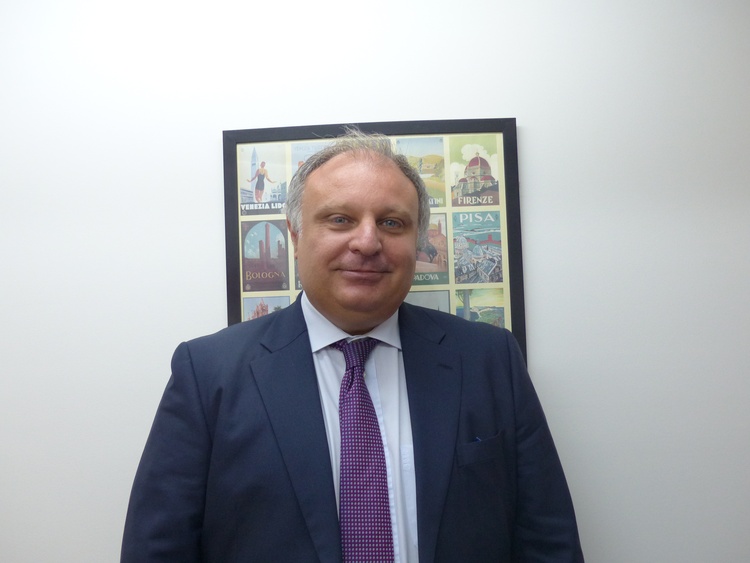Though little time has passed, he has already settled in well and focused on several priorities in the first month of his appointment.
When asked about his arrival in Australia, Mr Trombetta said it was “a bit like returning to your first love that you never forget”.
Hailing from the northern Italian city of Brescia, Mr Trombetta graduated from a Bachelor’s degree in Economics and Commerce and joined the Italian Diplomatic Service in 1998.
He received his first appointment as Consul in 2000 at the Consulate of Italy in Edmonton, the capital of Alberta, in Canada.
Mr Trombetta’s stint in Canada allowed him to “understand the difficulties that Italians encountered in the nations to which they migrated”, including those who migrated to Melbourne after World War II.
His first impressions of Victoria’s capital were great, as were those of the Italian community: vibrant and still active with a strong presence of young people.
“The community has done a great deal, particularly the older generations, but it’s good to see that what they created works and that the younger generations are embracing and continuing that italianità,” the Consul General said.
Mr Trombetta regards his top priority as somewhat of a moral obligation: improving the Italian Consulate’s services.
“Especially towards the beginning, my efforts will be invested in offering good services, as there are things which could be improved,” he explained.
For Mr Trombetta, doing so means rewarding a community which has contributed greatly to the broader society, has created a wonderful image of Italy, and which hasn’t always had an easy life, particularly in the past.
Once he has achieved this first goal, the Consul would like to concentrate on promoting the economic and commercial interests of Italy.
With a strong predisposition for business, Mr Trombetta has dedicated much of his career to industrial cooperation, dealing in exchanges and investments between Italy and other nations.
From 2004 through to 2008, he managed the commercial office of the Italian Embassy in Cyprus, and from 2013 until August this year, he managed the commercial office of the Embassy of Italy in Tokyo where he “left his heart”.
Looking at Victoria, the Consul General sees great potential for development and industrial relations between Italian companies whose headquarters are based in Melbourne.
“Business is good thanks to the love that both Italians and Australians from diverse backgrounds have for Italian products,” he declared.
Within the already well-established food and wine industry, the most promising sector is that of “green technologies”, a field in which Italy is the technological leader.
On a commercial level, Mr Trombetta may consider operations similar to those carried out in Japan, in which Italian and Australian companies collaborate in third markets.
The diplomat emphasised that there is also a need for the promotion of Italy’s cultural interests in a broad sense, through the likes of food, sport, cinema and tourism.
Alongside the new director of the Italian Cultural Institute, who should begin in November, Mr Trombetta would like to propose a new approach targeted towards schools and the wider Australian public.
He explained that this is a new direction which should not be seen as an exclusion of the Italian community, but simply a way to extend its members, from the confines of the Institute to the general public.
Another topic touched on in the interview was that of youth migration; a new phenomenon not only for the Consul but for Italy in general, not yet ready to confront it.
“Italy was prepared to manage the communities that are traditionally abroad,” Mr Trombetta said.
“But we didn’t expect a new wave of migration. This is now a problem that needs to be tackled and we have to adapt to this new situation, because it is a different migration from the past.”
Young Italians who leave their home now have degrees and qualifications and often an already good grasp on the English language, meaning a greater possibility of integrating in relation to older generations.
“However, they may have more expectations, and therefore become more demanding,” Mr Trombetta explained.
Australian visa and residency laws have also changed, meaning that most of the Italians who migrate nowadays eventually return to Italy.
“This means that you have to give them the answers they’re looking for in a short amount of time,” Mr Trombetta said.
“It’s not possible to respond to their needs on a long-term basis.”
The issue of youth migration is one of many which Mr Trombetta will explore during his time as Consul General of Italy in Melbourne.












